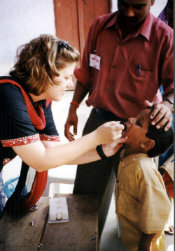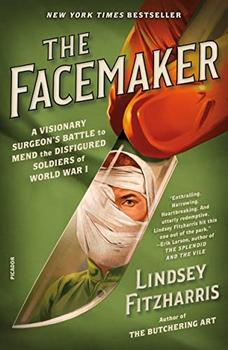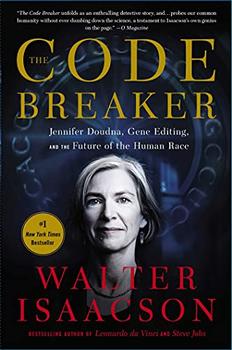Summary | Excerpt | Reviews | Beyond the book | Read-Alikes | Genres & Themes | Author Bio

Science, Politics, and the Human Costs of Defeating Disease
by Meredith WadmanThe epic and controversial story of a major breakthrough in cell biology that led to the conquest of rubella and other devastating diseases.
Until the late 1960s, tens of thousands of American children suffered crippling birth defects if their mothers had been exposed to rubella, popularly known as German measles, while pregnant; there was no vaccine and little understanding of how the disease devastated fetuses. In June 1962, a young biologist in Philadelphia, using tissue extracted from an aborted fetus from Sweden, produced safe, clean cells that allowed the creation of vaccines against rubella and other common childhood diseases. Two years later, in the midst of a devastating German measles epidemic, his colleague developed the vaccine that would one day wipe out homegrown rubella. The rubella vaccine and others made with those fetal cells have protected more than 150 million people in the United States, the vast majority of them preschoolers. The new cells and the method of making them also led to vaccines that have protected billions of people around the world from polio, rabies, chicken pox, measles, hepatitis A, shingles and adenovirus.
Meredith Wadman's masterful account recovers not only the science of this urgent race, but also the political roadblocks that nearly stopped the scientists. She describes the terrible dilemmas of pregnant women exposed to German measles and recounts testing on infants, prisoners, orphans, and the intellectually disabled, which was common in the era. These events take place at the dawn of the battle over using human fetal tissue in research, during the arrival of big commerce in campus labs, and as huge changes take place in the laws and practices governing who "owns" research cells and the profits made from biological inventions. It is also the story of yet one more unrecognized woman whose cells have been used to save countless lives.
With another frightening virus imperiling pregnant women on the rise today, no medical story could have more human drama, impact, or urgency today than The Vaccine Race.
Wadman's journalistic experience is evident. She has written for Science, Nature, The New York Times and The Washington Post for years. In The Vaccine Race, Wadman expertly corrals the hordes of details, and packages them in a way that is not only understandable but also allows us to appreciate the political context that resulted in particular decisions and outcomes...continued
Full Review
 (946 words)
(946 words)
(Reviewed by Zoë Fairtlough).
 Vaccines are responsible for the global eradication of smallpox, rinderpest, and soon, it is hoped, polio and measles. Despite the backlash against vaccines, which has caused the occasional reemergence of German measles and chickenpox, new scientific advances promise to tackle scourges like malaria, HIV and cancers.
Vaccines are responsible for the global eradication of smallpox, rinderpest, and soon, it is hoped, polio and measles. Despite the backlash against vaccines, which has caused the occasional reemergence of German measles and chickenpox, new scientific advances promise to tackle scourges like malaria, HIV and cancers.
The World Health Organization highlights other notable effects:
Protection against related diseases: The measles vaccination, for example, can protect against dysentery, bacterial pneumonia, keratomalacia and malnutrition.
Cancer prevention: The Human Papilloma Virus vaccination is expected to substantially reduce the incidence of cervical cancer. (See 'Beyond the Book' for The Immortal Life of Henrietta Lacks for ...

If you liked The Vaccine Race, try these:

by Lindsey Fitzharris
Published 2023
Lindsey Fitzharris, the award-winning author of The Butchering Art, presents the compelling, true story of a visionary surgeon who rebuilt the faces of the First World War's injured heroes, and in the process ushered in the modern era of plastic surgery.

by Walter Isaacson
Published 2022
Winner of the 2021 BookBrowse Nonfiction Award
The bestselling author of Leonardo da Vinci and Steve Jobs returns with a gripping account of how Nobel Prize winner Jennifer Doudna and her colleagues launched a revolution that will allow us to cure diseases, fend off viruses, and have healthier babies.